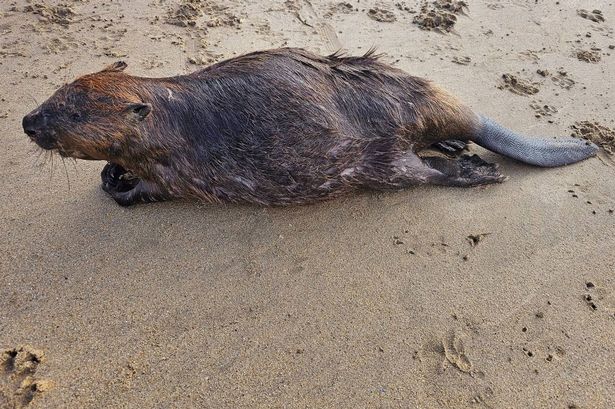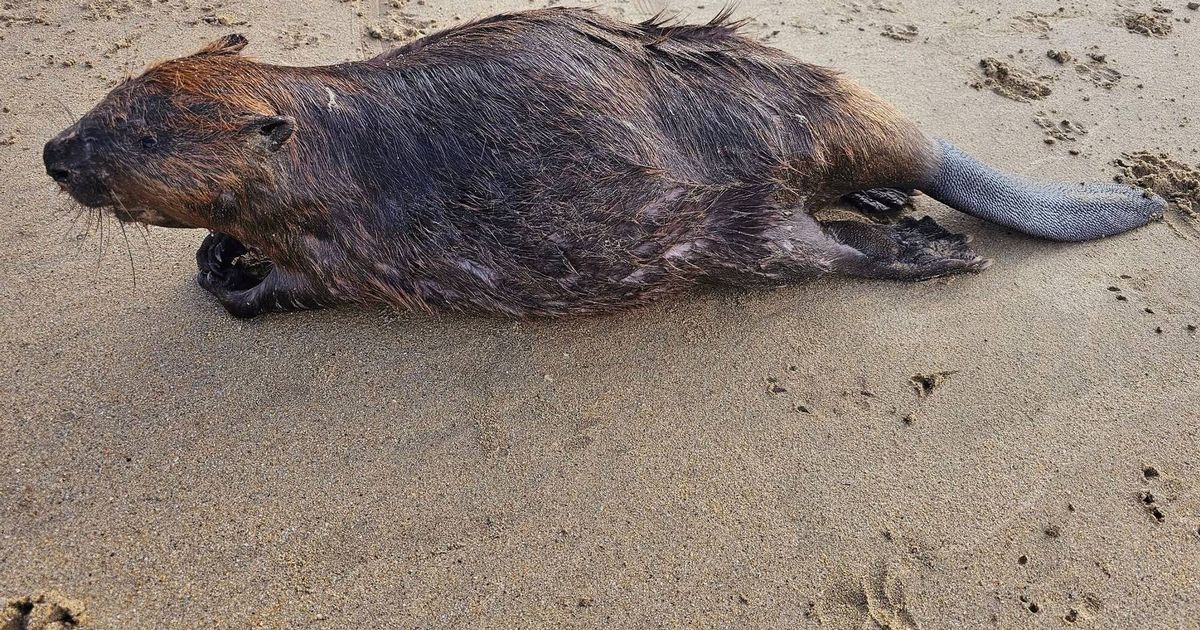It was found to be dead despite looking “alive and alert” A dead beaver was discovered washed up on Polzeath Beach(Image: Polzeath Beach Ranger Service)
A dead beaver was discovered washed up on Polzeath Beach(Image: Polzeath Beach Ranger Service)
A dead beaver has been discovered on a Cornish beach in what is being billed as an extremely rare find. The beaver, thought to be a juvenile female, was spotted on Polzeath Beach on Sunday morning (July 20).
Although the creature appeared “alive and alert”, Polzeath Beach Ranger Service confirmed it had died. The rangers explained that a surfer initially found the beaver in the water before transporting it onto the shore, where Cornwall Wildlife Trust collected it for post-mortem analysis.
Writing on Facebook at the time, Polzeath Beach Ranger Service stated: “A sombre start in Polzeath this morning with this extremely rare find. The poor beaver was deceased – despite looking alive and alert!”.
“It is being collected by an expert for a post-mortem. Cornwall Wildlife Trust are, and will continue to co-ordinate enquiries to ascertain where and how it died.”
 A dead beaver was discovered washed up on Polzeath Beach(Image: Polzeath Beach Ranger Service)
A dead beaver was discovered washed up on Polzeath Beach(Image: Polzeath Beach Ranger Service)
A Cornwall Wildlife Trust representative revealed that post-mortem results suggest the young female beaver had probably died from saltwater poisoning. They indicated the creature had most likely entered the ocean after being separated from its natural environment, reports Cornwall Live.
Though such incidents remain uncommon, the spokesperson noted they may become more frequent as beaver numbers grow across Cornwall. Their complete statement read: “Cornwall Wildlife Trust can confirm that marine strandings volunteers were called to Polzeath on Sunday morning after a deceased beaver was washed up on the beach. The beaver was taken for post-mortem examination.
“The post-mortem findings indicate that it was a young female in poor body condition, with fluid in the stomach and gut, suggesting saltwater intoxication. Beavers cannot survive for long in saltwater environments, and it’s likely this animal entered the sea after becoming displaced from its habitat, possibly part of a wild colony spotted previously along the River Camel.
“This is a rare and unfortunate incident, though something likely to happen on occasion as populations increase. Cornwall Wildlife Trust has been involved in carefully managed beaver projects for several years, alongside ambitious plans for licensed wild releases in Cornwall, and continues to monitor and support the health and welfare of Cornwall’s beaver population. We are grateful to the Marine Strandings Network and local beach rangers for their assistance.”
